Akasha Rabut is a photographer based in New Orleans, La and New York City, NY. She has a BFA in photography from the San Francisco Art Institute. Some of Akasha’s clients include J. Cole, Nike, Aritzia, Bare Essentials and Budweiser. She has been published in Vogue, ESPN The Magazine, Bust Magazine, Accent, Barbara and Juxtapoz.
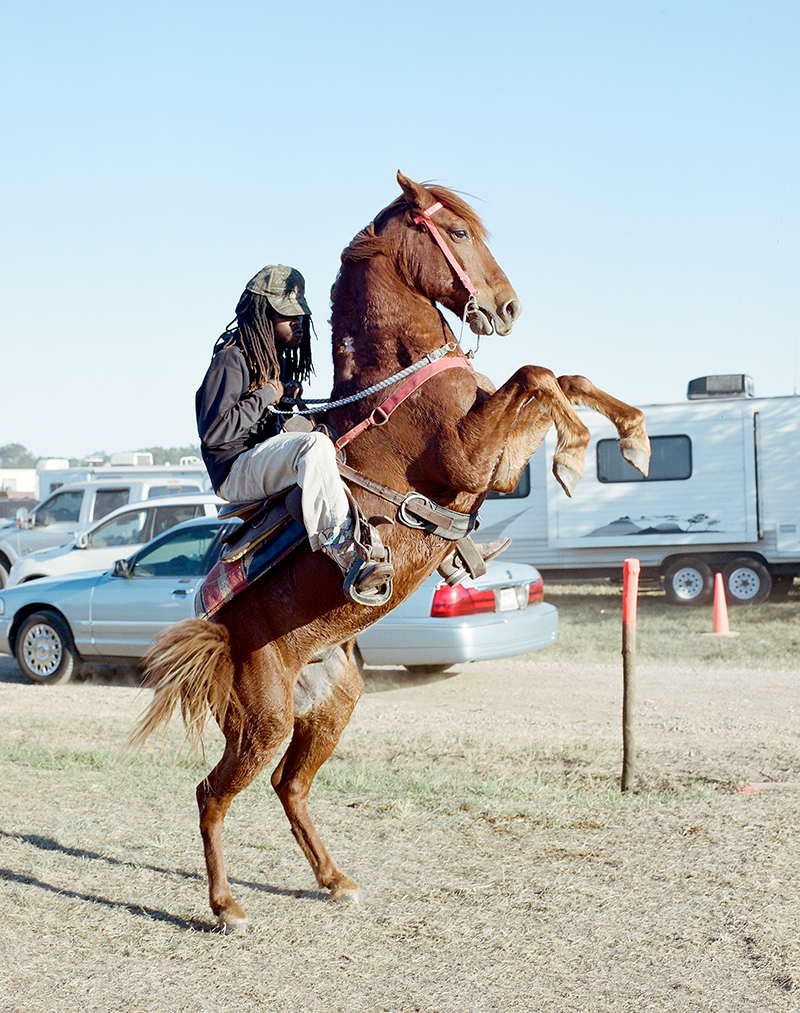
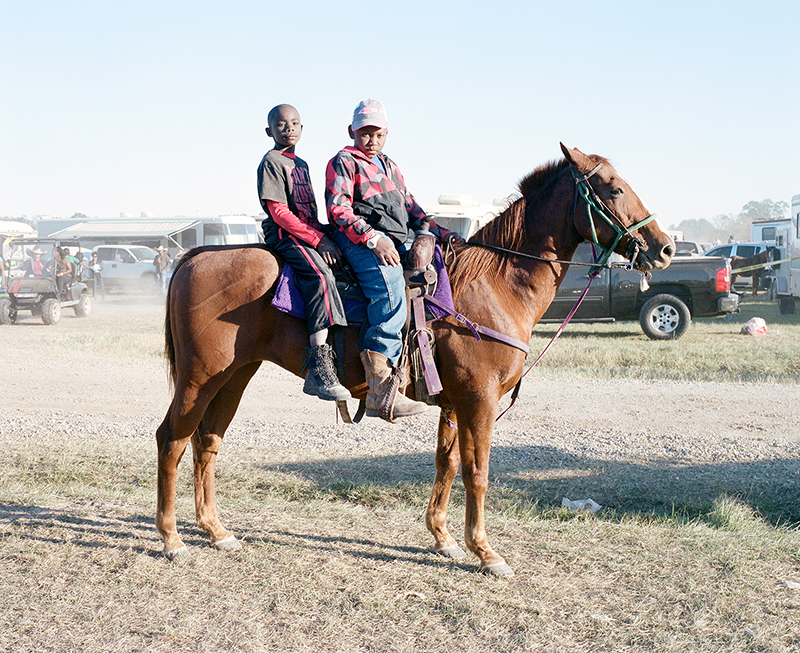
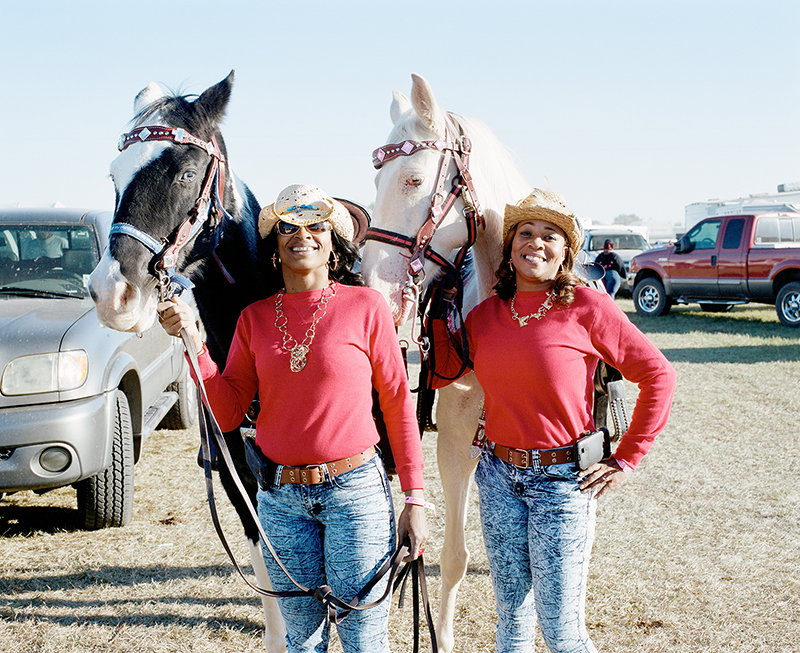
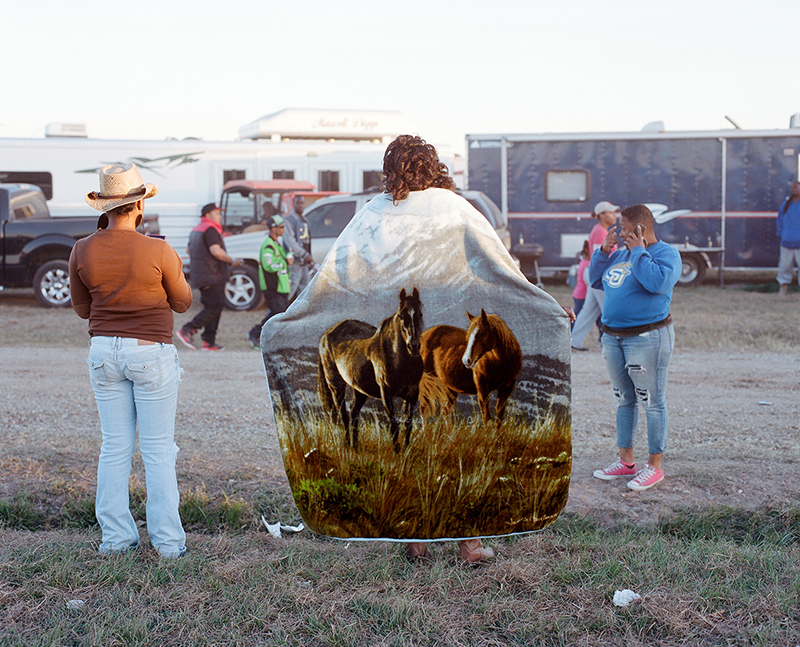
Southern Riderz
Early on a Sunday morning, in New Orleans, the street cleaners arrive on Bourbon Street, and the very last stragglers leave the bars. Some families are dressing for church, but others are primping themselves in a different sort of Sunday best, in preparation for the day’s second line parade. They are putting the finishing touches on elaborate bright costumes, taking out curlers and applying makeup. Other attendees are up early too: attaching barbecues to their trucks to haul onto the parade route and sell food to paraders. Brass band members assemble in their neighborhoods, carpooling and warming up. Across the Mississippi river in a small community called Bridge City, the Game Changers, a group of twenty somethings wearing boots and white t-shirts, are at the stables to wash and groom their horses. While much of the city has just begun to think about brunch, they are loading the horses into trailers and driving them into New Orleans where the second line will begin at noon.
The present day culture of parades and brass band processions is deeply rooted, and can be traced back to New Orleans’ funeral traditions. A New Orleans funeral includes a brass band, and a walking procession formed as family and friends carried the casket to the cemetery. In the past, black families would pool resources so that they could afford these rituals, forming what are called social aid clubs. Members to a social aid club paid annual fees and paraded with the club in funeral processions. In turn, when their time came, they were ensured the same dignified procession and a proper burial.
These days, funeral expenses are not out of reach for most families, and over time the role of these clubs has shifted from social aid and burial society to pleasure clubs that celebrate their members. Now, every Sunday during the season, one of the social aid and pleasure clubs, with names like the Young Olympians, Zulu, Men of Labor, and the Sidewalk Steppers, dress in flamboyant colors and star in a parade through their neighborhood. The club will have costumes and decorations made, hire brass bands and rent parade floats, and throw a slow moving dance party that stops at members and friends businesses as it winds through the streets. New Orleanians call this a second line.
At a typical second line, hundreds of people will gather along the route to join in, greatly outnumbering the pleasure club. These gatherings are free dance parties, informal fashion shows, and neighborhood networking events. They are central to the social lives of many black New Orleanians. At the second line you can present yourself to your community exactly how you’d like. People dress to impress, and if you want to stand out in these crowds, you have to do something bold. It’s easy to find men in three piece suits, women with 2-inch fingernails, elaborate sculptural hair, and custom RIP t-shirts. Car clubs arrive, slowly rolling around the parade in shiny muscle cars and vintage Cadillacs on rims. Motorcycle clubs make an appearance, wearing matching vests and sometimes even matching high heels. People become local celebrities at second lines, by showing up every Sunday and doing their thing, like the snake man, or the man with the penny-farthing bicycle. They are but famous without anyone knowing their name. The game changers are no different, and bring their horses to nearly every sunny second line. People expect them; they are part of the attraction.
Unlike a motorcycle or a fabulous outfit, however, horses need to be fed, stabled and groomed, and trained to behave in the often hectic environment of New Orleans street parades. The responsibility of keeping the animals is enormous. The Game Changers make stops at the stables before and after work to feed the horses. During their free time they hang out at the stables, teaching the poses and stunts, such as standing straight on the horses until they are accustomed to it. Before they show their horse in public they carefully wash and dry them, select a harness color and wrap the horse’s ankles in matching bandage. Being urban cowboys is a lifestyle, and riding every Sunday in second lines is part of it. It is important to them to be there. They get to enjoy the parade, and also become part of the parade.
In October, the Game Changers travel west to attend a trail ride, the biggest of dozens of similar events, which take place each year. Black trail ride events take place all over the U.S., but the ones in Louisiana have a strong regional flavor. Ten thousand people have come from all around the South to camp out, hear zydeco music, and party. The main event is a huge trail ride, in which all the cowboys ride together, following behind massive speakers pulled by a truck. It’s a stunning sight: thousands of horses jostling through the woods with their tipsy riders leaning back and shouting over blaring music. The Game Changers come here to represent New Orleans, and their youthful, less traditional approach to being a black cowboy. Their horses are used to the loud music, and don’t get spooked by the chaotic atmosphere. Devence, Jesse, and Wayne are relaxed and visibly having a great time. For these New Orleans cowboys, the festive scene isn’t so different from a Second line.
The Game Changers are young men, but they have inherited a black cowboy tradition of entertaining that isn’t new. Ask, and Devence brings up his idol Bill Picket, a famous black cowboy and rodeo rider born in 1870. Nor are they the first to show off their horses at second lines, just the latest to inherit the practice, which has been in slow decline for decades. As a fixture at New Orleans’ Second Lines, the club hopes to get youth interested in keeping and riding horses. In the saddle, the riders tower over the throngs of people at the parade. There is an air of majesty about a young man on a horse, and it is not wasted on the crowd. People photograph them, pose with them in selfies. Skittish children are urged by parents to stroke the animals’ necks, while dancers and horn players march nearby. As another Sunday passes leisurely in New Orleans, the Game Changers are keeping a culture alive, helping define the culture by bringing their style into the mix.
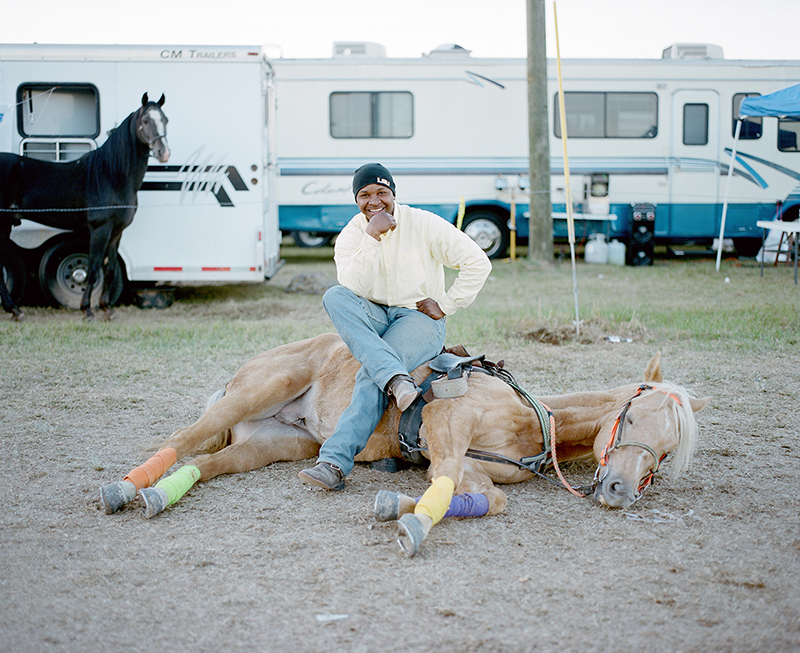
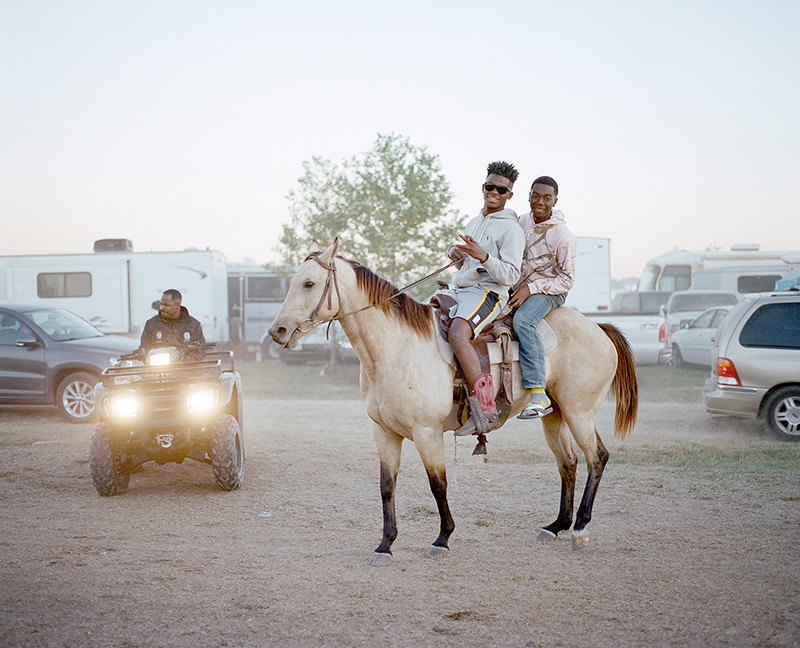
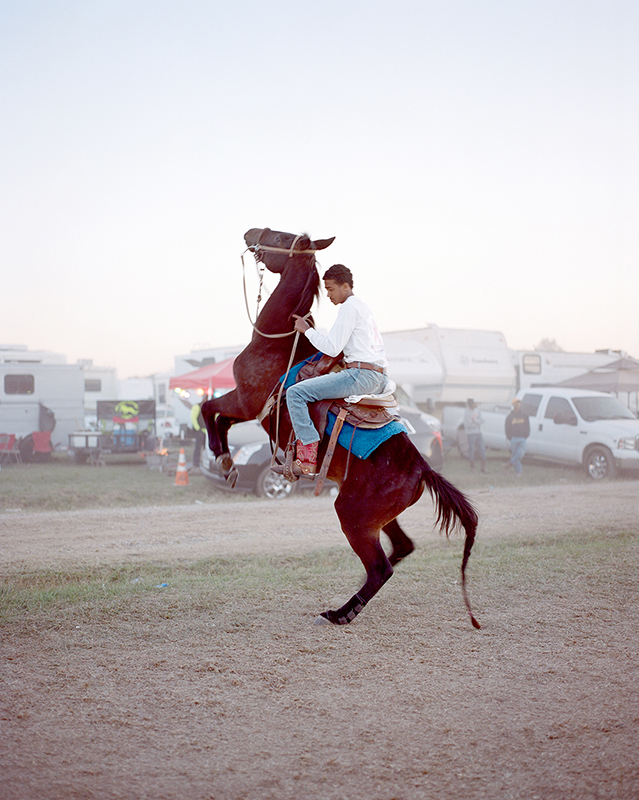
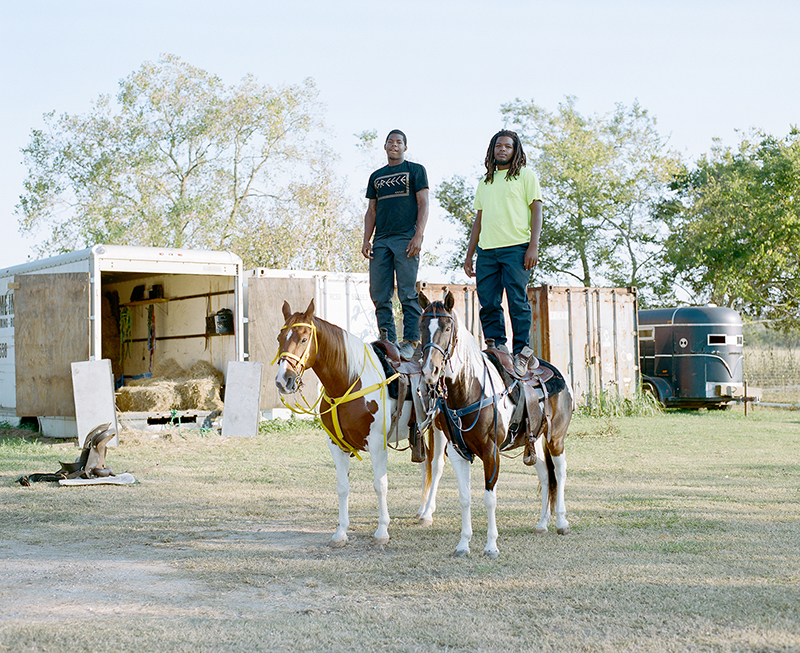
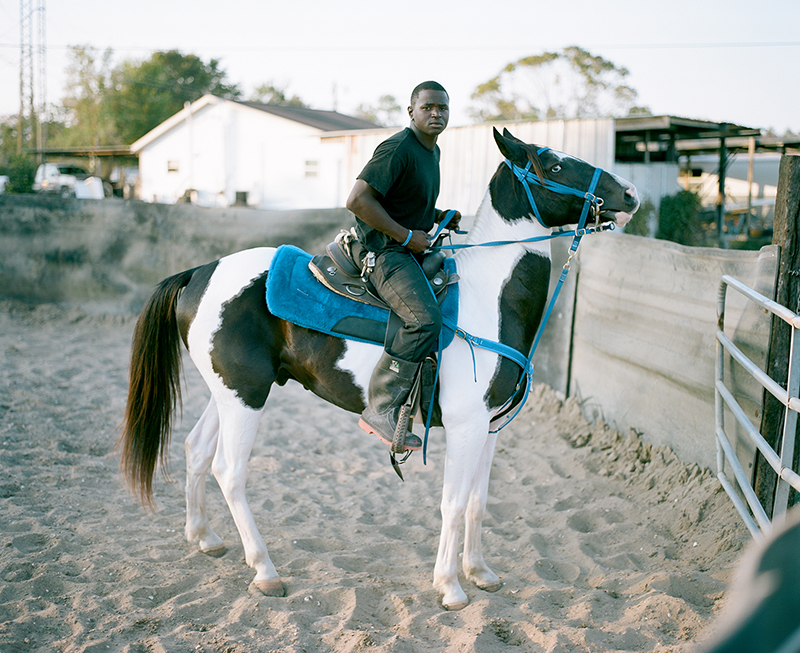
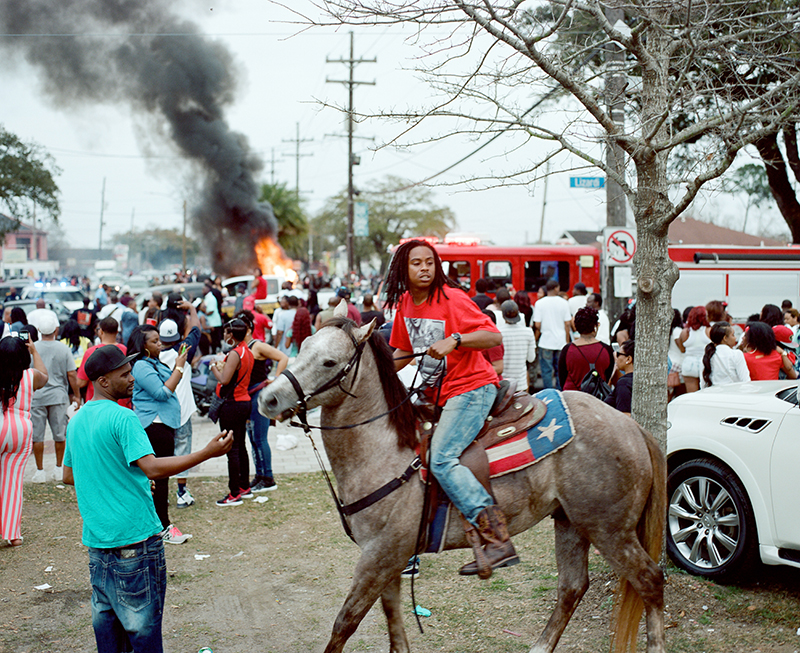
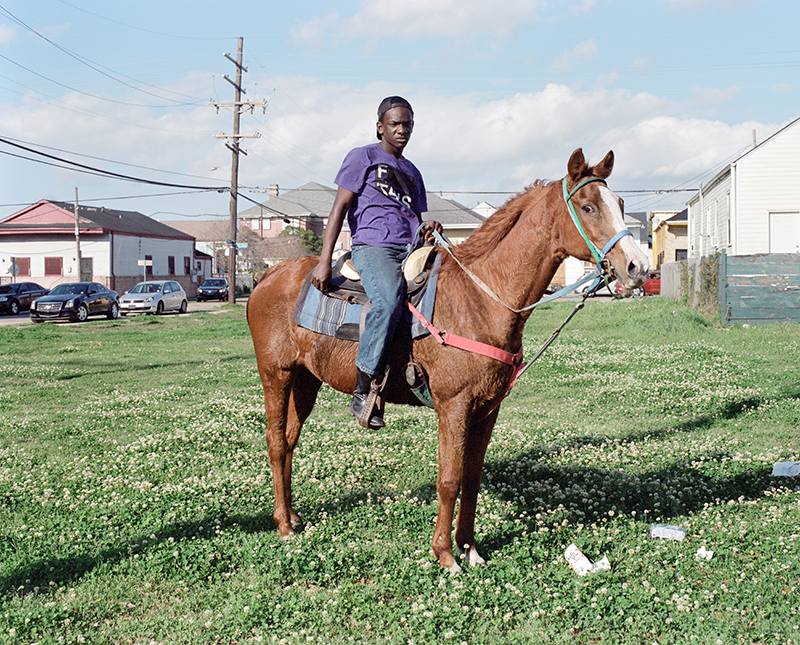
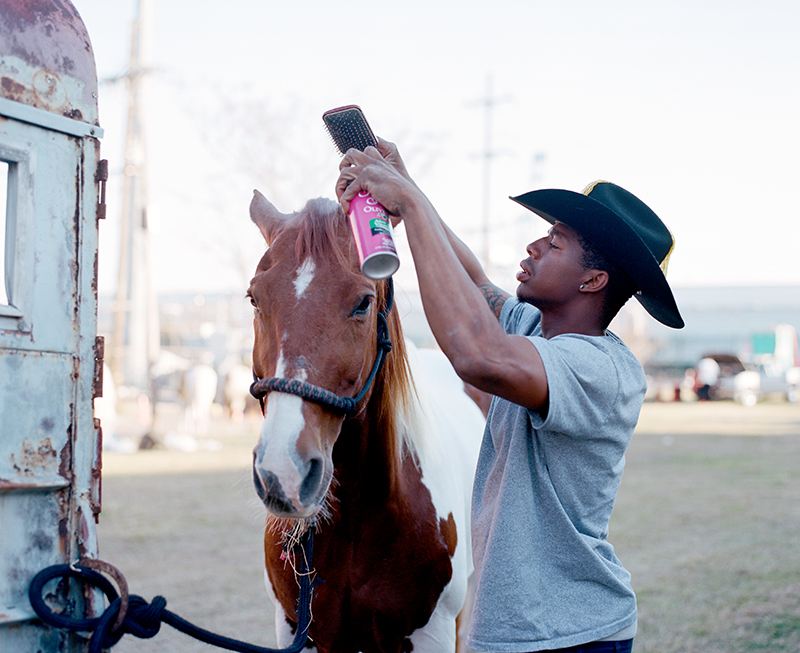
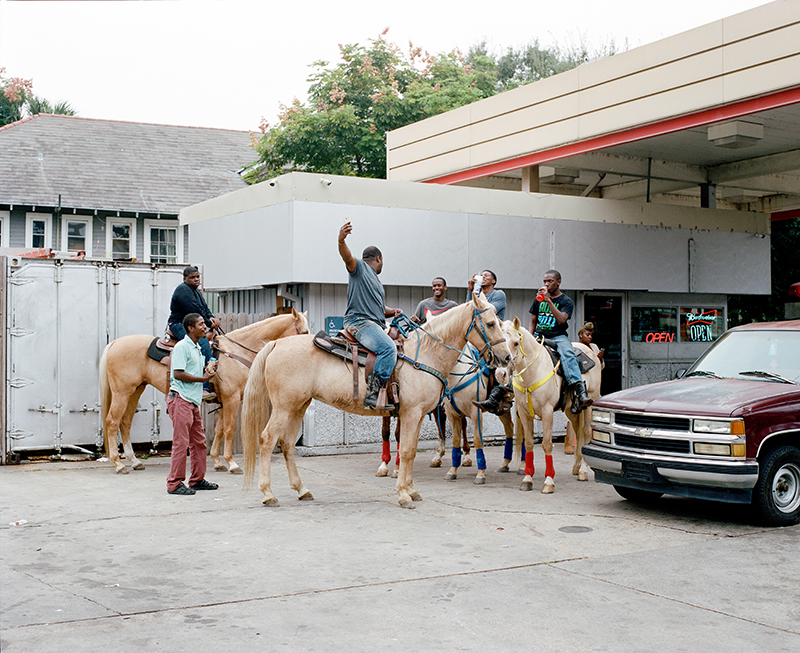
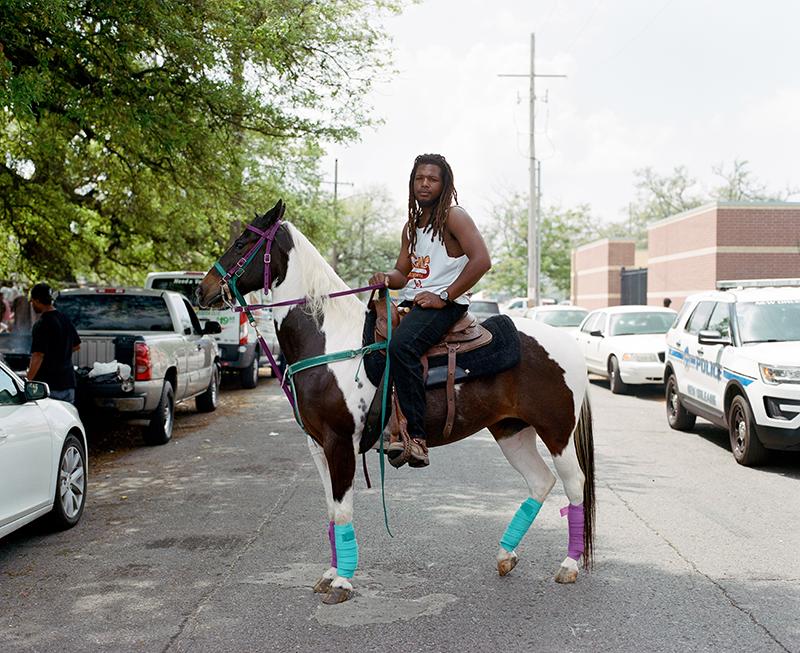
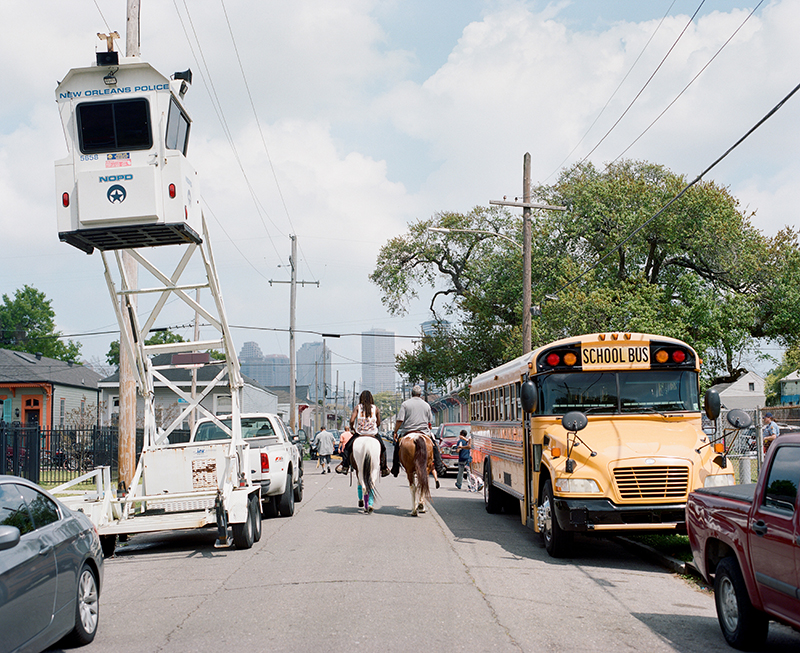
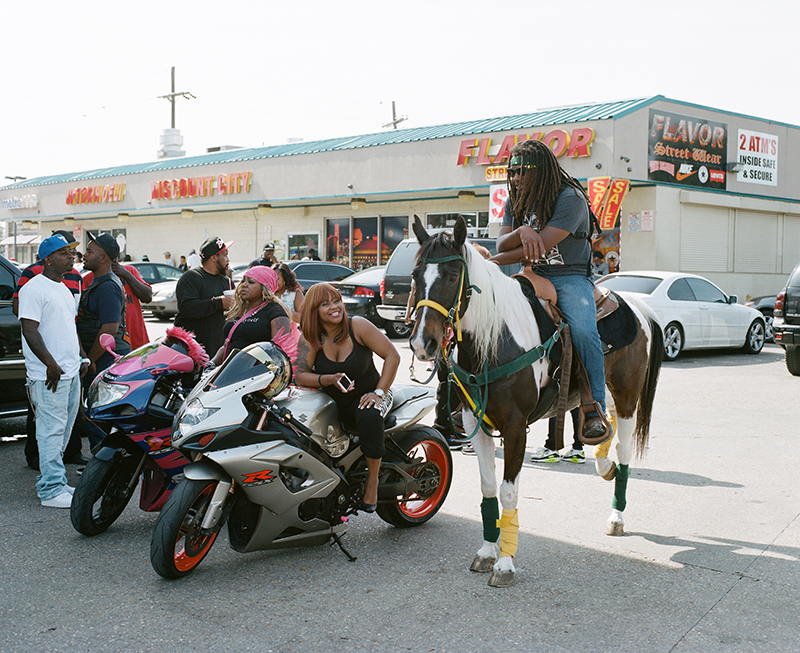
To view more of Akasha’s work please visit her website.